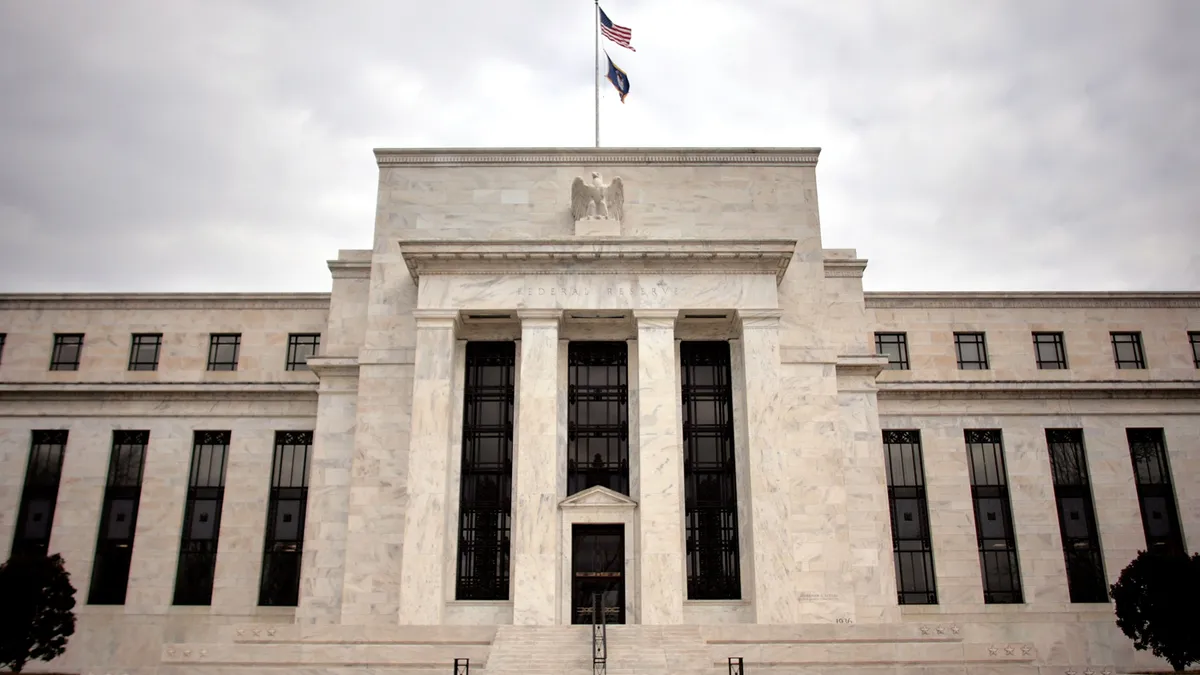The Federal Reserve on Tuesday pushed a tiered approach with regard to financial institutions’ requests for access to Fed accounts and payment services.
Under the proposal, institutions with federal deposit insurance would receive a "more streamlined level of review, those without insurance that are supervised by a federal banking agency would undergo an intermediate level of review, and those without insurance and not supervised by a federal bank regulatory agency would be subject to a stricter level," the central bank said Tuesday.
The move, which builds upon a May 2021 proposal, is meant to bolster transparency and ensure fairness — and stave off ethical gray areas such as one alleged last month by Sen. Cynthia Lummis, R-WY, during a nomination hearing for President Joe Biden’s three most recent Fed candidates.
Lummis implied that Sarah Bloom Raskin, Biden’s nominee for vice chair of supervision at the central bank, used her influence as a recent Fed governor to help Colorado-based Reserve Trust gain a Fed master account, allowing the fintech to move money without working with a bank.
The Federal Reserve Bank of Kansas City denied Reserve Trust's first application for a master account in June 2017, a month after Raskin joined the fintech’s board.
Lummis said Raskin called the Kansas City Fed in August 2017 about the denied application. Reserve Trust was granted a Fed master account in 2018.
The Senate Banking Committee’s ranking member, Sen. Pat Toomey, R-PA, asserted in a letter after the hearing that Kansas City Fed President Esther George herself told him Raskin made the 2017 call directly to her.
Raskin repeatedly refused at the hearing to say whether she called the Kansas City Fed on Reserve Trust’s behalf. She later submitted a written statement to Toomey indicating she did "not recall any communications I made to help Reserve Trust obtain a master account."
Republicans’ reservations over the master account issue appear to have prompted the party’s 12 Senate Banking members to skip a scheduled Feb. 15 vote on all five current Fed nominees, forcing Democrats to delay the process.
“This is not the moment for political stunts,” the panel's chair, Sen. Sherrod Brown, D-OH, said this week on the Senate floor, according to The New York Times. Brown had expressed hope last week for a vote Wednesday. However, a committee spokesperson Wednesday said that vote wouldn’t be happening yet, according to Bloomberg.
Biden himself took a moment during his State of the Union speech Tuesday to address the stalled nominations.
"What are we waiting for? Let’s get this done," he said of his economic agenda, according to American Banker. "And while you’re at it, confirm my nominees to the Federal Reserve, which plays a critical role in fighting inflation."
The central bank is accepting public comments on Tuesday's proposal for 45 days.
"With technology driving rapid change in the payments landscape, the proposed guidelines would ensure novel requests for access to Federal Reserve accounts and payment services are evaluated consistently and transparently to ensure a safe and innovative payment system," said Fed Gov. Lael Brainard, whose nomination to ascend to the central bank’s vice chair role is among those in limbo.














